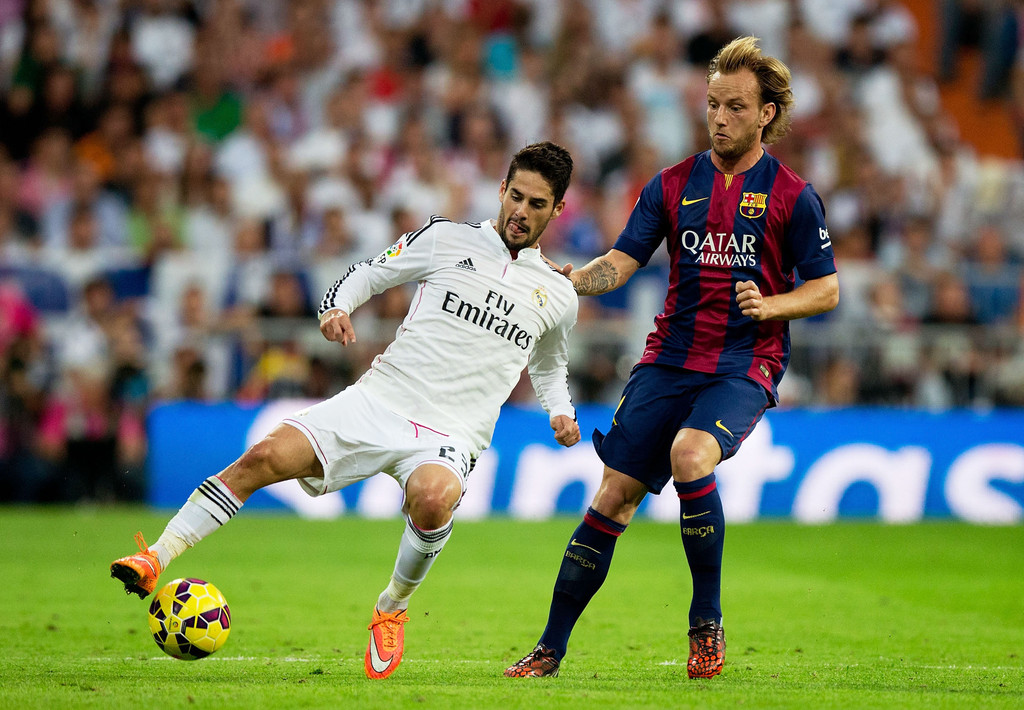For the states of the Gulf Cooperation Council, football is more than just a sport – it is a way of gaining power that can’t be obtained through politics or diplomacy. Countries like Qatar and the United Arab Emirates (UAE) use football to create a positive global image and secure influence around the world. With large sponsorship deals, stadium naming rights, and team ownership, GCC states have been able to spread soft power and influence while also whitewashing human rights abuses.
‘Fly Emirates’ has become infamous in football as the most common shirt sponsor across European leagues. The Dubai- based airline spent the most on shirt sponsorships in the 2017/2018 season and is one of only 5 companies out of 212 that sponsor shirts across more than one league. Currently Fly Emirates has sponsorship deals with England’s Arsenal ($44.24m), Spain’s Real Madrid ($33.75m), Germany’s Hamburg ($9.37m), Italy’s AC Milan ($21.25m), France’s Paris Saint-Germain ($31.25m), the US’s New York Cosmos ($3.12m), and Portugal’s SL Benfica ($10m) – costing a whopping total of $152.98 million. Emirates also renewed its contract with Real Madrid until 2021/2022 for a record breaking $87.49 million. Etihad, another UAE airline, was ranked 5th for shirt sponsorship spending in the 2017/2018 season – spending $48.87 million to sponsor Manchester City. In addition to shirt sponsorships, Emirates and Etihad also have the naming rights to the two most expensive football stadiums in Europe which are home to Arsenal and Manchester City.
Manchester City, a high-ranking British football team, has been owned by the UAE since 2008. Since then, the UAE has expanded its ‘City Football’ franchise to two other continents – acquiring what are now named Melbourne City FC from Australia and New York City FC from the United States. Qatar is also a large player when it comes to football team ownership. They have owned the Spanish team, Malaga CF, since 2010 and the French team, Paris Saint-Germain, since 2011, when it was bought by Qatar Sports Investment. This past year, Qatar also spent a record-breaking $263 million for Brazilian football star Neymar to leave Barcelona and play for Paris Saint-Germain.
Unfortunately, the GCC’s role in football overshadows its role in human rights abuses. Just last year, the FIFA Club World Cup – a tournament played between the champion clubs from each of the six continental confederations – was hosted by the UAE. The UAE was also the summer vacation destination of choice for 17 different football players. That same year, the UAE imprisoned Tayseer al-Najjar, a Jordanian journalist on charges of “insulting state symbols” in Facebook posts criticizing Israel, Egypt, and the Gulf countries, arrested Ahmed Mansoor, one of the last free outspoken human rights defenders in the country, and played a significant role in torture and enforced disappearances in Yemen.
Qatar too uses its outsize presence in global football to attempt to hide its record of human rights abuse. It has been accused of exploiting migrant workers and restricting the rights to freedom of expression, association and peaceful assembly, however, it will be hosting the FIFA World Cup in 2022. Moreover despite its record of human rights abuses, German team FC Bayern Munich traveled to Qatar for their 7th year in a row to train at Doha’s Aspire Academy- although it claims to be a club that “professes social responsibility and a proud Jewish heritage.”
Overall, the power the GCC states have been able to buy through football has impacted how they are perceived by the international community. Owning teams, sponsoring shirts, and having their names on world-class stadiums allow the GCC countries to spread their influence around the world without the negative imagery of the human rights violations they take part in. In this manner, football has served as a way to project soft power and whitewash abuses.
Monica Zuraw, ADHRB Advocacy Intern





